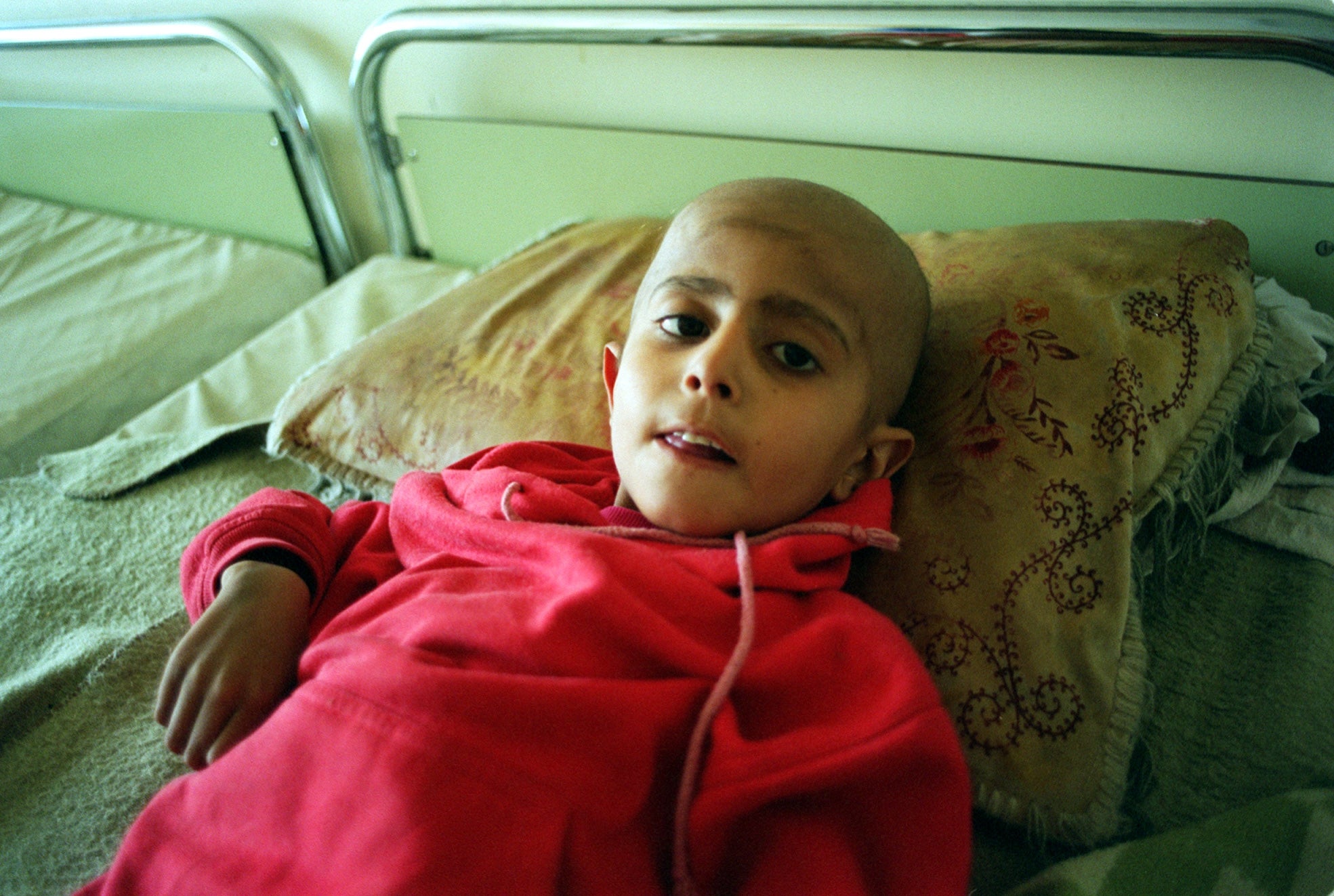The tragic toll of depleted uranium in Iraq
January 2001: Robert Fisk writes that of course Iraq used the deaths of children from cancer as propaganda, but it didn’t make it any less real

They smiled as they were dying. One little girl in a Basra hospital even put on her party dress for The Independent’s portrait of her. She did not survive three months.
All of them either played with explosive fragments left behind from US and British raids on southern Iraq in 1991 or were the children – unborn at the time – of men and women caught in those raids. Even then, the words “depleted uranium” were on everyone’s lips. The Independent’s readers cared so much that they contributed more than £170,000 for medicines for these dying children. Our politicians cared so little that they made no enquiries about this tragedy – and missed a vital clue to the suffering of their own soldiers in the Balkans eight years later. In March 1998, Dr Jawad Khadim al-Ali – trained in Britain and a member of the Royal College of Physicians – showed me his maps of cancer and leukaemia clusters around the southern city of Basra and its farming hinterland, the killing fields of the last days of the 1991 Gulf war “that were drenched in depleted uranium dust from exploding US shells”.
The maps showed a four-fold increase in cancers in those areas where the fighting took place. And the people from those fields and suburbs where the ordnance were fired were clustered around Dr Ali’s cancer clinic in Basra. Old men, young women with terrible tumours, whole families with no history of cancer suffering from unexplained leukaemia.
Subscribe to Independent Premium to bookmark this article
Want to bookmark your favourite articles and stories to read or reference later? Start your Independent Premium subscription today.
Join our commenting forum
Join thought-provoking conversations, follow other Independent readers and see their replies